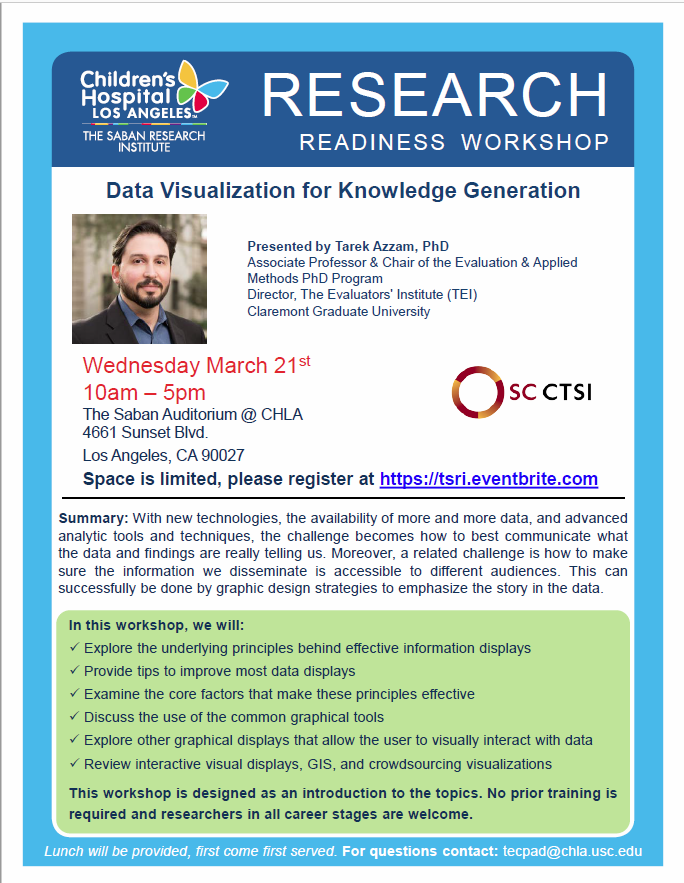Event
Workshop: Data Visualization for Knowledge Generation
The Saban Auditorium at CHLA
With new technologies, the availability of more and more data, and advanced analytic tools and techniques, the challenge becomes how to best communicate what the data and findings are really telling us. Moreover, a related challenge is how to make sure the information we disseminate is accessible to different audiences. This can successfully be done by graphic design strategies to emphasize the story in the data.
Event Details
With new technologies, the availability of more and more data, and advanced analytic tools and techniques, the challenge becomes how to best communicate what the data and findings are really telling us. Moreover, a related challenge is how to make sure the information we disseminate is accessible to different audiences. This can successfully be done by graphic design strategies to emphasize the story in the data.
In this workshop, we will:
- Explore the underlying principles behind effective information displays
- Provide tips to improve most data displays
- Examine the core factors that make these principles effective
- Discuss the use of the common graphical tools
- Explore other graphical displays that allow the user to visually interact with data
- Review interactive visual displays, GIS, and crowdsourcing visualizations
This workshop is designed as an introduction to the topics. No prior training is required and researchers in all career stages are welcome.
Lunch will be provided, first come first served.

Contact Information
For questions contact tecpad@chla.usc.edu